Will concrete set in the rain? Imagine this picture that you are pouring concrete at ease on a construction site by an efficient pump machine, while suddenly it is lighting and thundering which obviously tells rain is coming soon. Or your project is delayed for days due to prolonged rain which will cause more or less economical loss.
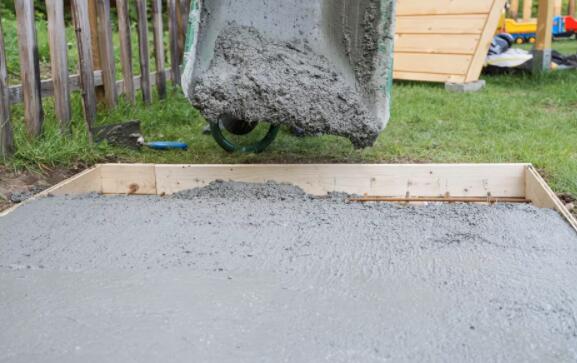
Is it feasible to pour concrete in the rain? And what shall we do? That is a common problem for all concrete construction teams.
What should we do or not do? This article provides some recommendation.
How Is Concrete Affected By Rain
To answer this question, let’s get to know firstly that how definitely concrete is affected by rain?
Actually, concrete is consisted of cement, aggregates and water in various proportions. Among them, water is a key component causing concrete to hydrate and gain strength. And aiming to produce certain concrete material with standard ratio, the proportion of water is also strictly regulated.
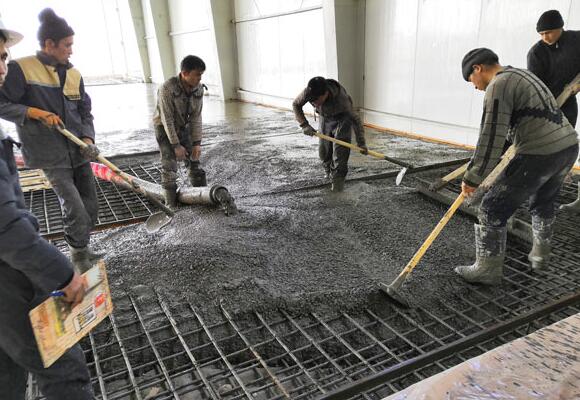
When the rain falls on a surface of concrete which is poured for a certain long time, the effects of falling rain may be minimal.
But when the rain falls on the surface of the fresh-pouring concrete, it may lead to the damage of the concrete surface.
Even more, if the rain is heavy and it falls too much into the concrete mixture, it will result in not only the surface damage but the deeper-structure weak of the concrete mixture overall.
Once the damage is done, the damage on the surface may be easy to repair. While the deeper hurt is often hard to rectified. sometimes even all these materials are discarded, and new concrete should be poured. That is because the additional water can be absorbed by the fresh concrete and change the water-cement ratio. So, pouring concrete in the rain is discouraged.
It is important to prevent the fresh-placing concrete from rain or water due to there is a risk to DAMAGE the surface and inner strong of the concrete material.
How Long Does Concrete Set
Will concrete set in the rain? It also depends on the concrete pouring time.
As the above mentioned, if concrete is finished pouring enough long time before it is rainy, it will be damaged little. The time here shouldn’t be less than 4 to 8 hours.
Actually, once concrete sets, water on the surface is beneficial because it helps in hydration and curing.
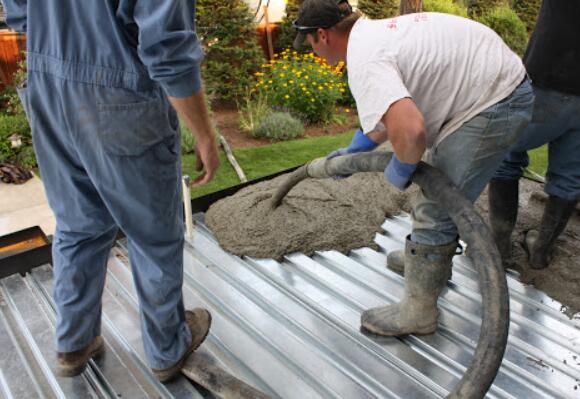
How To Know If Rain Has Damaged Concrete
After rain, an assess of any potential damage to the concrete is necessary.
The surface damage is obviously.
- Check for the surface scaling (flaking and peeling).
- Check the abrasion resistance through a scratch test. We can use a screwdriver to assess the integrity of the surface hardness.
Surface damage is probably easy to repair by filling some extra concrete. The best remedy way is to remove the weak surface layer by grinding and then replace the concrete with another concrete layer after making sure that the deeper underlying concrete is structurally intact.
However, it is recommended for some damages, a damage in areas of a thin slab for example, to remove the damaged concrete and replace full-depth concrete again.
If it is a large concrete pouring job, you can contact us for more concrete conveying and placing tools to provide an efficient and reliable construction working on site.
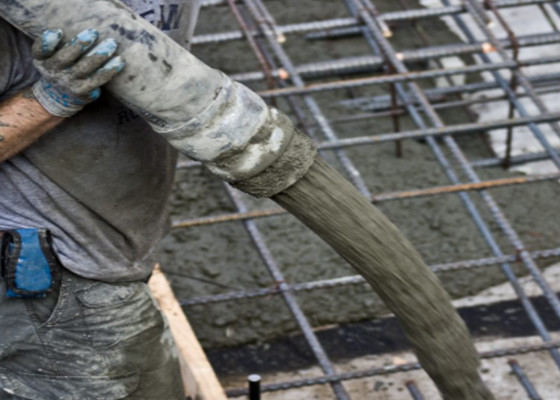
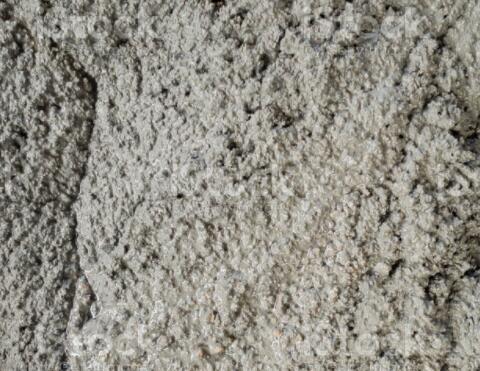
What Can We Do If It Rains During Concrete Pouring Process

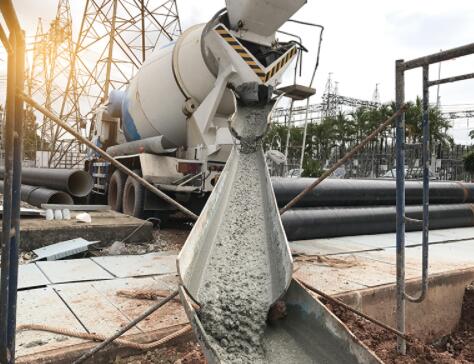
Here are some advice for pouring concrete during it is raining:
- Get well prepared. Check the weather forecast on the day of your pouring plan. If the rain is coming, make sure you have prepared enough covering and sealing methods including a tarp or plastic sheeting and so on. Pay attention to seal the edges so rainwater can’t seep underneath.
- Postpone the pouring plan. But if it is a large concrete pouring job, you’d better postpone the plan until conditions improve.
- Check the work site. Before pouring work, it is also important to check that the surfaces you are pouring onto are definitely dry. Do not pour your concrete materials into water-fill containers or wet surfaces where water cannot be displaced or escape.
- Never spread dry cement onto the concrete to soak up surface water. It is harm to the surface finish and will weaken the top layer.
- And once the rain is falling, push the water off the edge of the concrete slab.
- Set up proper drainage to mitigate any surface water and make sure the site surface is dry enough.
- Let your new concrete set for 48h before allowing walking or traffic on it.
All in all, there are also other good ideas about prevent concrete materials from rainwater before it sets. If you lack confidence for pouring concrete in the rain, contact us for more special ways for your practical situation.
Will concrete set in the rain and how to do with it, now you must get it!

